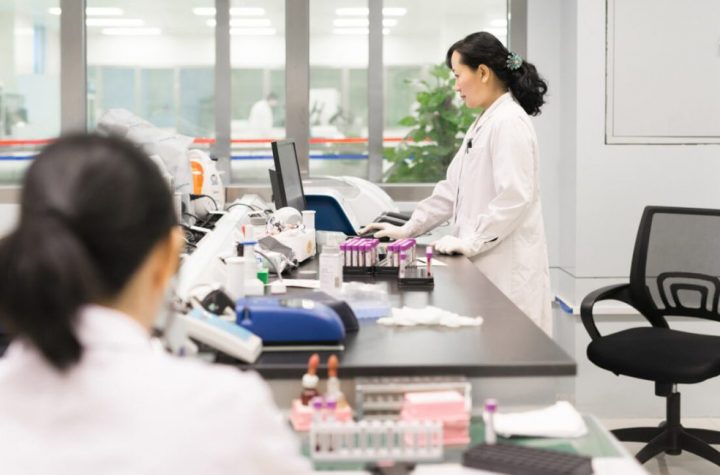
[ad_1]
- According to studies, the items you eat might either increase or lower the risk of COVID-19.
- They claim that substances like coffee and kale and breast milk can lower the risk of COVID-19 because they reduce inflammation in the body.
- They go on to say that tea, red meat, and fruit do not affect one way or the other, however, processed meats like hot dogs can increase risk factors.
Coffee, breast milk, and kale all have something in common.
According to a new study on how nutrition impacts immunity, they all have the potential to reduce your COVID-19 risk factors in a small way.
Researchers from Northwestern University in Chicago examined the link between eating habits from 2006 to 2010 and COVID-19 cases from March to November 2020 in the same people using UK Biobank data.
The study enlisted 38,000 people who had taken the COVID-19 test. The coronavirus was found in about 17% of people. In previous human and animal investigations, the meals employed in the study were found to affect the immune system.
The following foods reduced COVID-19 risk by 10%:
- coffee (1 or more cups a day)
- vegetables (2/3 serving, cooked or raw, excluding potatoes)
- breast milk (having been breastfed as an infant)
Tea, fruits, and red meat were among the foods that did not affect.
Processed foods, such as hot dogs and deli meats, were linked to an increased risk of heart disease. According to the study, just half a portion of processed meat each day can increase COVID-19 risk by 10%.
But how do you do it?
Although the study cannot prove cause and effect, experts believe that the link between nutrition and COVID-19 is more about inflammation than any single food item.
What professionals have to say
Dr. Purvi Parikh, an adult and pediatric allergy and immunologist in New York City and a spokeswoman for the Allergy & Asthma Network said, “In general, it makes sense because both coffee and veggies have been associated with decreased inflammation and consequently enhanced immune function.”
“While the mechanism is unknown, it demonstrates that healthy lifestyles are connected to improved COVID results, since individuals who were obese, had heart disease, or diabetes fared far worse than those who did not,” Parikh told Healthline.
Furthermore, Christina Meyer-Jax, MS, RDN, LDN, CLT, RYT, a health advisor for Lifesum and Gympass, stated that the new research confirms that people who are breastfed as infants, eat a diet rich in plant-based foods and consume fewer processed meats and junk foods have a better chance of avoiding both acute and chronic diseases.
“Overall, this is a plus for consuming more whole foods and plant-based whenever possible,” Meyer-Jax told Healthline. “However, additional study on diet and COVID-19 risk is needed to make solid dietary recommendations.”
While maintaining a healthy diet can help prevent diseases like obesity, diabetes, and heart disease, “a decent diet alone is not enough, and a vaccine is the single most effective strategy to prevent COVID-19,” according to Parikh.
Benefits of each food explained
Coffee
While both tea and coffee have disease-fighting chemical compounds, Meyer-Jax claims that coffee has more polyphenols than tea, particularly chlorogenic acid, which is a unique ingredient in coffee.
She stated, “Other investigations have demonstrated that this chemical may support immunological function.”
More research is needed, according to Meyer-Jax, to determine what factors are directly influencing these results and what level of caffeine consumption is regarded safe.
Vegetables
According to Meyer-Jax, vegetables contain significant vitamins and phytonutrients that work together to support immune function.
“Vegetables also include fiber, which has been linked to a better gut bacteria mix in studies,” she added.
She continued, “Having more ‘good for you’ gut flora can lead to a stronger immune system and less inflammation, leading to greater overall health.”
Breast milk
According to health experts, breast milk contains antibodies that can protect infants with illnesses like ear infections, colds, flu, and gut infection effects.
Breastfed babies also have an added layer of protection against respiratory infections, according to the researchers. This is where the coronavirus would fit in.
Earlier this year, the research found that people who have been vaccinated can pass on the vaccine’s protective advantages to their infants through breast milk.
Keeping your immune system in mind while you eat
Aside from coffee, veggies, and breast milk, there are a variety of nutrients that can help maintain a strong immune system.
Experts say it’s up to the individual and their family to decide which meals to keep on hand.
They claim that you have the power to transform your immune system, in the long run, to help avoid diseases of all kinds, including COVID-19.
Meyer-Jax believes that making long-term nutritional adjustments must start with a realistic mindset.
“It’s a steady process of introducing one good behavior at a time, adhering to it, and then gradually adding additional habits,” she explained.
She went on to say, “Having support is also important.” “I advise my clients to use healthy eating apps… to help them set realistic health goals and provide tools like meal plans and diet tracking to help them achieve them,” says the author.
[ad_2]
Source link





More Stories
Researchers are testing an mRNA vaccine to fight HIV. – MARI
Recovering from days of sleep deprivation can take up to a week. – MARI
How High Cholesterol Affects Your Risk of Certain Cancers – MARI